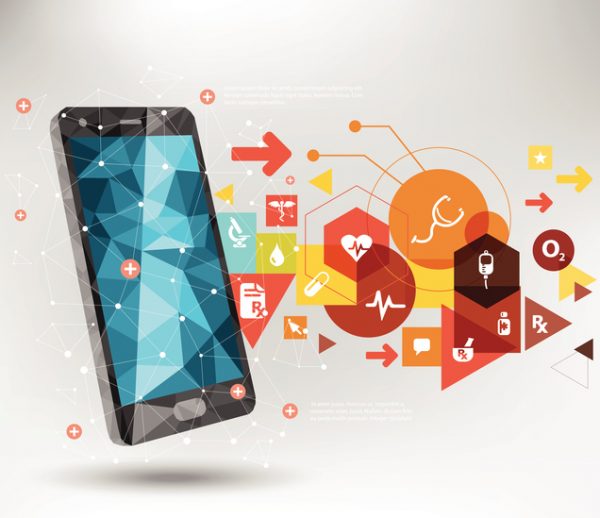
A new survey asked 552 U.S. consumers what they use mobile apps for in healthcare. The top three tasks were scheduling appointments (70 percent of respondents), viewing lab results (52 percent) and requesting prescriptions (40 percent).
SOTI, a company providing mobile and IoT device management solutions, conducted the survey in April 2019 via Survey Monkey. All respondents were between the ages of 18 and 60.
Ryan Webber, SOTI’s vice president of enterprise mobility, said “[p]atients value both convenience and speed” when making appointments, seeing their health information and getting medication. “Therefore, the ability to complete all these functions via a mobile app is considered a more efficient use of time as it’s done across one pane of glass on a device that goes with you everywhere,” he said via email.
The survey results also found 75 percent of respondents indicated that doctors who integrate mobile technology into their practice offer a faster and more convenient healthcare experience.
Perhaps the rise of mobile app usage isn’t surprising given how much people use their phones in day-to-day life.
“We must first remember that patients are consumers too,” Webber said. “And it’s well known that today’s consumers desire quick and easy access to services they want and need the most, including healthcare.”
But there are still barriers to using mobile technology in the world of medicine.
For instance, 67 percent of respondents said they prefer in-office visits with their doctor over telehealth services.
“We don’t see mobile apps replacing the physician-to-patient relationship anytime soon, rather, we believe mobile technology will augment this experience and make it better, for physicians and patients alike,” Webber noted.
There are also security concerns. According to the survey results, 40 percent of consumers are very concerned about the potential for data breaches and 43 percent remain somewhat concerned. And almost 80 percent of patients said the responsibility should be on doctors to protect their private health information.
To combat security issues, Webber suggested that providers invest in enterprise mobility management solutions, which ensure data security and HIPAA compliance.
Photo: exdez, Getty Images















